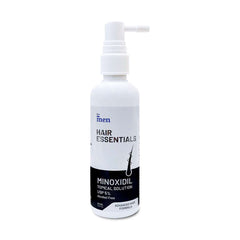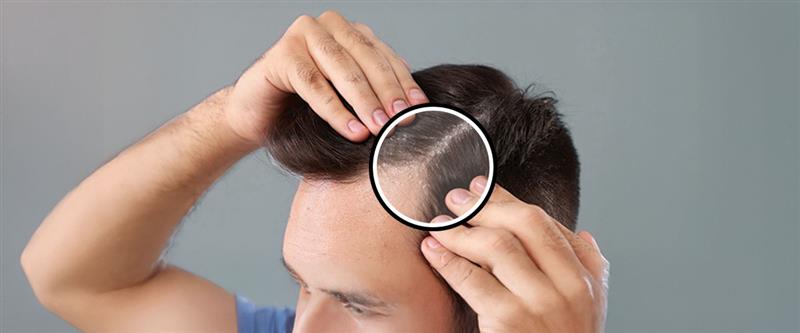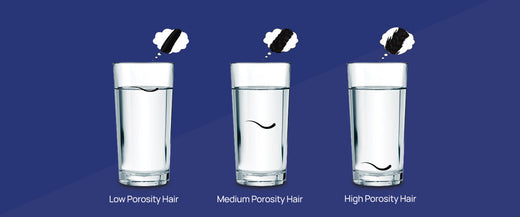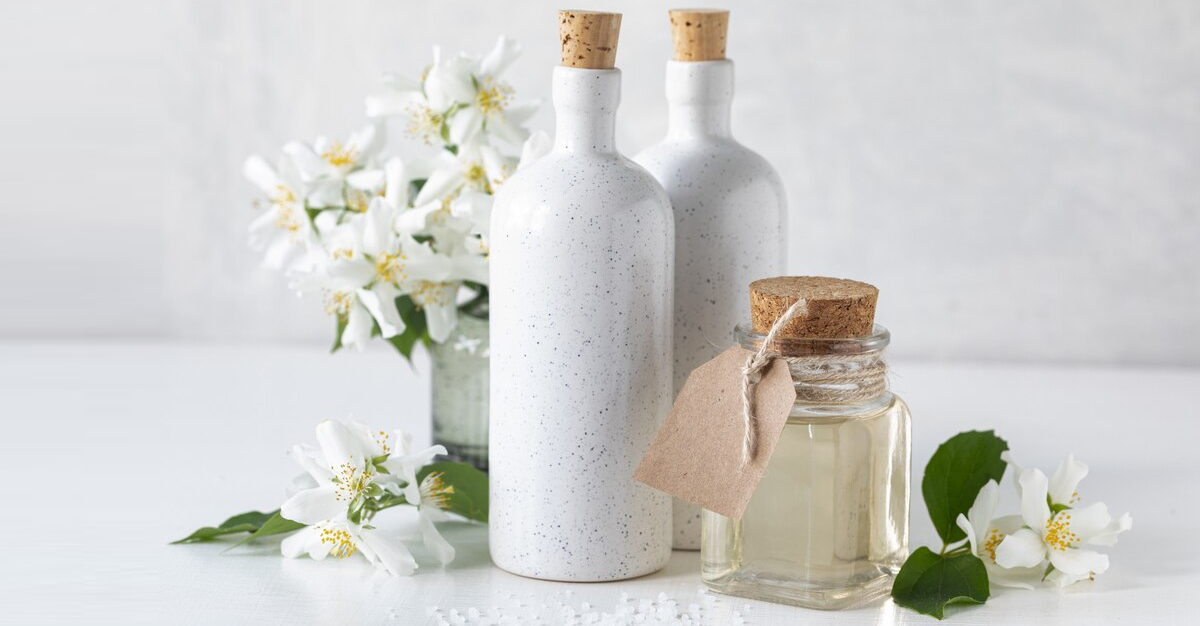Onion Juice for Hair Growth: Benefits, How to Use, Side Effects
Evidence Based
All the information in this blog post is accurate, trustworthy, scientifically based and has been written and fact-checked by our experts and doctors.
Our licensed nutritionists and dietitians are committed to being objective, unbiased and honest, presenting all sides of the argument.
This article includes scientific references in brackets, which are clickable links to research papers from reputable academic organizations.

Onion juice has gained popularity as a potential remedy for hair growth due to its high sulphur content and alleged benefits for hair health. However, it's important to note that while some people claim positive results, scientific evidence supporting the effectiveness of onion juice for hair growth is limited and mixed.
Amazing Health Benefits of Onion Juice for Hair Growth
1. Rich Sulphur Content for Healthy Hair:
Onions are rich in sulphur compounds, which are essential for the formation of keratin, a protein that makes up the structure of hair. Some researchers believe that applying sulfur-rich onion juice to the scalp could potentially support hair growth and health.
2. Positive Impact on Hair Growth:
While there have been some small-scale studies and anecdotal reports suggesting that onion juice may have a positive impact on hair growth, the overall scientific evidence is not yet robust enough to make conclusive claims.
3. Increases Blood Circulation to Scalp:
It's believed that onion juice might stimulate hair follicles, increase blood circulation to the scalp, and reduce inflammation, all of which could contribute to healthier hair growth.
But, following are some of the important points to be considered before using Onion juice for hair.
Important Things to be Remembered While Using Onion Juice for Hair Growth
1. Irritation and Allergies:
Applying onion juice directly to the scalp can cause irritation and allergic reactions in some individuals. It's recommended to perform a patch test before applying onion juice to your scalp to check for any adverse reactions.
2. Personal Variability:
Hair growth is influenced by a variety of factors, including genetics, overall health, hormonal balance, and lifestyle. What works for one person might not work for another, and the effectiveness of onion juice can vary from individual to individual.
3. Other Factors:
Hair growth is a complex process influenced by multiple factors, including diet, stress levels, hair care practices, and more. Focusing solely on onion juice without considering other aspects of hair care and overall health may not yield significant results.
4. Professional Advice:
If you're considering using onion juice for hair growth, it's a good idea to consult with a dermatologist or a healthcare professional. They can provide personalized advice and recommendations based on your specific hair and scalp condition.
How to Use Onion Juice for Hair Growth?
Making onion juice for hair application is a straightforward process.
Below is a simple method:
- Take 2 medium sized onions, peel them and cut into small pieces so that it’s easier to blend.
- Use a food processor, blender, or a grater to finely chop or grate the onion pieces. If using a blender, you can add a small amount of water to help with the blending process.
- Once the onions are finely chopped or grated, place the mixture in a strainer or cheesecloth over a bowl to extract the juice. You can also use a fine mesh sieve.
- Press down on the onion mixture to extract as much juice as possible. You can use a spoon or your hands to do this.
- Collect the extracted onion juice in a bowl. You can discard the remaining onion pulp or use it for other purposes.
- If you find the onion juice to be too strong or if you have sensitive skin, you can dilute it with a small amount of water.
- Before applying onion juice, perform a patch test on a small area of your skin to check for any allergic reactions or irritation.
- Section your hair to make it easier to apply the onion juice to your scalp.
- Using a cotton ball, a cotton pad, or your fingertips, apply the onion juice directly to your scalp. Gently massage it in circular motions to ensure even distribution.
- Once you have covered your entire scalp, you can also apply some of the onion juice to the lengths of your hair if you wish.
- Leave the onion juice on your scalp and hair for about 30 minutes to an hour. Some people leave it on overnight, but be cautious of potential irritation.
- After the recommended time, wash your hair thoroughly with a mild shampoo to remove the onion smell and any residue.
- You can follow up with a conditioner if needed.
Remember, onion juice has a strong odor that can be difficult to remove from your hair. If the smell persists even after washing, you can try using a few drops of essential oil in your shampoo or conditioner to help mask the odor.
It's important to note that results can vary from person to person, and it may take time to see any potential benefits. If you experience any discomfort, irritation, or adverse reactions, discontinue use immediately and consult a healthcare professional.
Potential Side Effects of Onion Juice for Hair:
While some people have reported positive results from using onion juice on their scalp for hair growth, there are potential side effects and considerations to be aware of:
1. Skin Irritation:
Onion juice can be harsh and irritating to the skin, especially for individuals with sensitive skin. It contains sulfur compounds that might cause redness, itching, burning, or other forms of skin irritation. It's important to do a patch test on a small area of skin before applying onion juice to your entire scalp to check for any adverse reactions.
2. Allergic Reactions:
Some individuals may be allergic to onions. If you are allergic to onions or other members of the Allium family (such as garlic or leeks), using onion juice on your scalp could trigger an allergic reaction. Signs of an allergic reaction might include itching, hives, swelling, and difficulty breathing. If you suspect an allergic reaction, stop using onion juice immediately and seek medical attention if needed.
3. Odor:
Onion juice has a strong and pungent odor that can linger even after washing your hair. This smell might be challenging to mask completely, and it could be bothersome for some people.
4. Scalp Sensitivity:
If you have a sensitive or compromised scalp, onion juice may further irritate your skin. Conditions like eczema, psoriasis, or open wounds on the scalp might be exacerbated by the use of onion juice.
5. Excessive Dryness:
The sulfur content in onion juice might lead to dryness if used too frequently or without proper moisturization. Make sure to maintain a balanced hair care routine and use a gentle, hydrating shampoo and conditioner.
6. No Guaranteed Results:
While some people claim positive results with onion juice, there is limited scientific evidence to support its effectiveness for hair growth. Results can vary widely between individuals, and it might not work for everyone.
Simple Tips to Minimize Potential Side Effects of Onion Juice for Hair:
- To minimize potential side effects and ensure your safety, here are some tips:
- Always perform a patch test before using onion juice on your scalp.
- If you experience any adverse reactions, discontinue use immediately.
- Dilute the onion juice with water if you find it too strong.
- Avoid using onion juice if you have known allergies to onions or related foods.
- Do not leave onion juice on your scalp for extended periods without washing it off, as this could increase the risk of irritation.
In conclusion, while some people have reported positive results with onion juice for hair growth, scientific evidence is currently limited. If you decide to try onion juice, do so cautiously, perform a patch test, and consider it as one part of a holistic approach to hair care that includes a balanced diet, proper hair hygiene, and overall health management.
It's also a good idea to consult with a dermatologist or healthcare professional, especially if you have any pre-existing skin conditions or concerns. They can provide personalized advice based on your individual situation and help you make an informed decision about whether onion juice is appropriate for you.
Also Read the Articles:
Disclaimer: The information provided on this page is not a substitute for professional medical advice, diagnosis, or treatment. If you have any questions or concerns about your health, please talk to a healthcare professional.

 Evidence Based
Evidence Based






Leave a comment